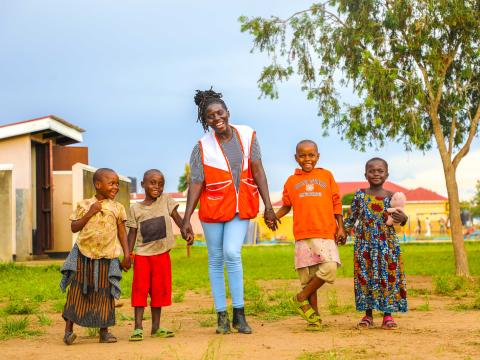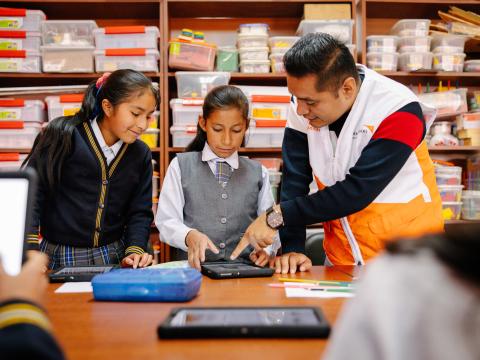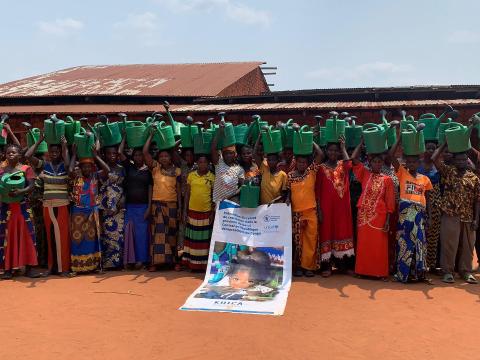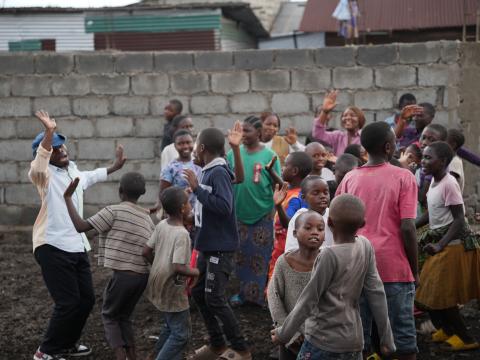
The Forgotten Foundation of the SDGs: Mental Health Support for the Most Vulnerable Children
Phiona Koyiet emphasises that mental health and psychosocial support (MHPSS) is a critical yet often overlooked component of humanitarian and development work, especially for vulnerable children. She argues that poor mental health significantly hinders children's development and well-being, particularly in crisis-affected populations like refugees and migrants. Koyiet calls for greater investment, stronger partnerships, and adherence to global guidelines to close the treatment gap in low- and middle-income countries.
Today, mental health is seen as a universal issue, but it is still a topic seldom spoken about for vulnerable children and their communities. Poor mental health can hinder children’s development, learning, and emotional well-being, impacting their future potential. A child who has good mental health and psychosocial well-being, however, can cope with life’s stresses, work productively, and contribute to their family and community.
While it’s important to advocate for the physical, familial and environmental needs in crises and emergencies, mental health and psychosocial support (MHPSS) must also be included in humanitarian programming so that children can grow up in caring and safe environments.
The statistics are staggering
More than 1 in 7 children and adolescents (ages 10 to 19) are living with a diagnosed mental health condition and nearly half of mental health conditions start in childhood. For children, who are among the most vulnerable population in a crisis or disaster, poor mental health not only hinders their learning and development but is a top cause of death, disease and disability, especially for older adolescents.
According to WHO, refugees and migrants exposed to adversity are more likely than host populations to experience mental health conditions such as depression, anxiety, post-traumatic stress disorder (PTSD), suicide and psychoses. At the same time, many struggle to access mental health services and face disruptions in care.
Less investment in mental health leads to significant gaps in prevention and care for children, adolescents and caregivers. Mental health needs more urgent investment from donor agencies and governments, especially in low- and middle-income countries where the need is greatest.
Our Commitment to Mental Health
World Vision’s specific interest in MHPSS came during the emergency response for the Rwanda Genocide in the early 90s, where it became clear that the psychosocial consequences of the war were just as pertinent to people’s recovery as were their needs for safety and material aid. But back then MHPSS was almost unheard of, and it took years for further action to gain momentum.
One of our earliest programmes developed a tool for measuring depression within this post-conflict Rwanda context. Using this tool, a series of Interpersonal Psychotherapy for Groups (IPTG) programmes were developed and later implemented in Uganda, particularly amongst people impacted by HIV/AIDS, with impressive results for sustained symptom reduction. IPTG has been rolled out in programmes in Uganda, Kenya, DRC, and South Sudan, amongst others.
Today, our interest and demand for MHPSS have grown beyond this one approach.
Whether in emergency responses to conflict or natural disasters, or transformational development programmes, we prioritise the integration of context appropriate and community-based MHPSS programmes. We leverage local resources, faith leaders, and community networks to provide culturally appropriate psychosocial support.
As part of our evidence-based approach, we use research findings from our interventions, like structured psychosocial group activities and community-led mental health initiatives, to design more robust and sustainable programmes. In the West Bank, for example, a new innovative, evidence-based training programme equips participants with practical skills to manage emotions and alleviate symptoms of depression, anxiety and stress for the children they support across 34 communities.
Our strategic intent is to leverage our global reach and grassroots connections to ensure the impacts of conflict, disaster, climate change, pandemics like COVID-19, and other drivers of poverty do not leave the most vulnerable children and families with mental health disorders that affect their daily lives and future well-being.
What can be done to bring MHPSS to the forefront?
Organisations like World Vision have a big role in the growing global mental health movement to reduce the treatment gap for people living with mental disorders in Low-middle-income countries. But there is more to be done.
To bring the MHPSS agenda forward, INGOs need to:
- Ground all programmatic approaches to MHPSS in the current Inter-Agency Standing Committee (IASC) Guidelines on MHPSS in Emergency Settings and the Mental Health and Psychosocial Support Minimum Services Package
- Integrate MHPSS programmes within other sectors (e.g., livelihoods, nutrition, health, child protection)
- Design robust contextual monitoring and evaluation of MHPSS programmes
- Partner with other like-minded peers to influence the MHPSS global movement through ten MHPSS Technical Advisory Boards
- Highlight and document evidence-based interventions for MHPSS(with partners, particularly the World Health Organization)
The Way Forward
As the world observes Mental Health Awareness Week, I reflect on the long strides INGOs have made in intentionally integrating mental health and psychosocial support (MHPSS) initiatives in our humanitarian and development efforts. And yet, the work is not done. Mental health and psychosocial support must be seen as essential for the holistic well-being of those we serve, and integral to our work.
About the Author:
Phiona Koyiet is the Senior Technical Advisor, Mental Health and Psychosocial, World Vision International.
Learn more about WV and WHO MHPSS Partnership
World Vision is classified as being in official relations with the WHO and commits biannually to jointly work towards common goals. WHO and World Vision also have a strong history of joint mental health and psychosocial programming, including implementation of mhGAP in Uganda, joint publication of the WHO, War Trauma Foundation & World Vision Psychological First Aid manual and implementation of the Randomised Control Trial for Problem Management Plus (PM+) in Kenya. They have engaged jointly on numerous IASC MHPSS Reference Group materials, such as the IASC Common Framework for Monitoring and Evaluation of MHPSS in Emergency Settings, and both organisations commit to emergency MHPSS work within the framework of the IASC Guidelines on MHPSS in Emergency Settings.
Recently, World Vision contributed to the development of the IASC Minimum Service Package Mental Health and Psychosocial Support and pilot testing in World Vision Colombia. In addition, we just concluded the first testing of the Multisectoral MHPSS Assessment toolkit.


